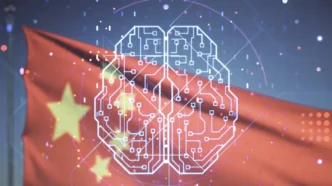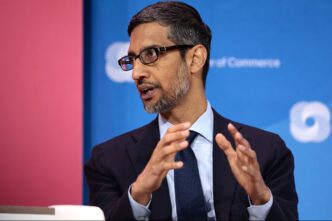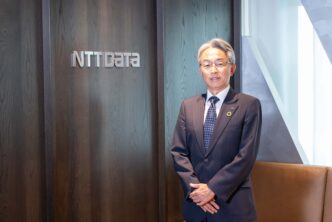China top tech firms are accelerating the adoption of the Model Context Protocol (MCP), a breakthrough that may move AI assistants beyond basic chatbot functions.
MCP acts like a universal plug, connecting AI agents to different apps and services. This allows them to do more than just answer questions—they can now make payments, schedule appointments, access maps, and fetch data from multiple platforms on behalf of users.
As highlighted by the South China Morning Post, companies such as Ant Group, Baidu, and Alibaba Cloud are rapidly deploying MCP-based services. They see AI agents, powered by this new standard, as the next step in AI’s evolution.
How China’s MCP Adoption Moves AI Past Chatbots
MCP was introduced by Anthropic in late 2024 to connect AI tools to external systems like business software, content libraries, and databases. Ant Group calls MCP the “USB-C port for AI,” highlighting its role as a universal connector.
Unlike basic chatbots, AI agents using MCP can break complex tasks into smaller actions, access services, and adjust their plans based on real-time feedback. This ability sets them apart from earlier AI tools and could power a new wave of smarter assistants.
Chinese firms are leading this charge. Ant Group has built an MCP server that lets AI agents work with Alipay, handling payments, refunds, and transaction updates with simple commands. Their AI platform, Tbox, now supports over 30 MCP-compatible services, including Amap, Google tools, and AWS data systems.
Alibaba Cloud has launched an MCP marketplace via its ModelScope platform. It offers over 1,000 services linked to productivity tools, storage platforms, and Google services. Meanwhile, Baidu has committed to supporting MCP to help developers build practical, real-world AI solutions.
This fast adoption marks a pivot away from large language models and static chatbots. According to Red Xiao Hong, CEO of Butterfly Effect, AI agents are more human-like in behavior. They interact with their environment, learn from feedback, and take smart actions.
Challenges and Global Implications of China’s MCP Push
While China’s MCP adoption is bold, it raises several important questions.
Global standardization remains a key hurdle. MCP, born from Anthropic’s efforts, may face competition from similar protocols by OpenAI, Microsoft, or Google. Without broader international support, MCP risks becoming a regional tool instead of a global game changer.
Regulatory issues are also in play. As AI agents start handling payments and accessing private data, oversight from authorities will grow. China’s AI rules are still developing, and any misstep could slow the momentum.
Security is another concern. MCP connects AI agents to many different systems. This opens the door to new risks. Each connection must be tightly secured to protect user privacy and system integrity.
Finally, tech challenges must be tackled. Integrating across platforms with different data formats and security models is hard. Achieving seamless, secure integration will require serious innovation.
Still, China’s investment in MCP shows confidence in the future of AI agents. If successful, these agents could change how people use digital services—shifting from tools that reply to queries to assistants that act, think, and help in real-time.
China’s MCP adoption may put its tech leaders ahead in the race for practical AI. And by setting early standards, these companies could shape the global future of AI-powered digital ecosystems.













